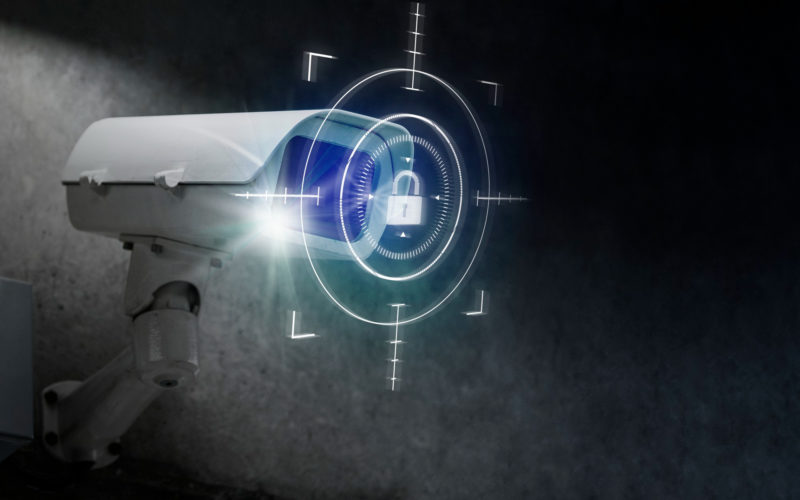Many business owners are aware of the importance of investing in security measures to protect their company’s assets. However, with so many options available, it can be difficult to determine which types of security will provide the best protection. This article will explore the different types of security that businesses should consider investing in to safeguard against potential threats.
One of the most important types of security for businesses is physical security. This includes measures such as access control systems, security cameras, and alarm systems to prevent unauthorized access to the premises. Physical security is especially important for businesses that handle valuable assets or sensitive information.
Another crucial aspect of business security is cybersecurity. As more and more business operations move online, the risk of cyber attacks increases. Investing in cybersecurity measures such as firewalls, antivirus software, and employee training can help protect against data breaches and other cyber threats. With the rise of remote work, businesses must also consider securing their employees’ devices and networks to prevent cyber attacks.
- Physical Security Measures
- Cybersecurity Strategies
- Employee Training and Policies
- Financial Safeguards
- Legal Compliance and Standards
- Business Continuity Planning
Physical Security Measures
Physical security measures are an essential aspect of securing any business. These measures focus on protecting the physical assets of a business, such as buildings, equipment, and inventory. Here are some of the most common physical security measures that businesses should consider investing in:
Access Control Systems
Access control systems are a crucial physical security measure that businesses should consider investing in. These systems use various technologies such as biometrics, smart cards, and PIN codes to restrict access to sensitive areas of a building. Access control systems also keep track of who enters and exits a building, which can be helpful in case of an emergency.
Security Cameras
Security cameras are another essential physical security measure that can help deter criminal activity and provide valuable evidence in case of a crime. There are many different types of security cameras available, including dome cameras, bullet cameras, and PTZ cameras. It’s important to choose the right type of camera for your business’s specific needs.
Alarms
Alarms are an effective physical security measure that can alert you and the authorities in case of a break-in or other emergency. There are many different types of alarms available, including burglar alarms, fire alarms, and panic alarms. Using fire alarm inspection software can help maintain and monitor your fire alarm systems effectively, ensuring ongoing safety. It’s important to choose an alarm system that is tailored to your business’s specific needs.
Fencing and Gates
Fencing and gates are physical security measures that can help prevent unauthorized access to your business’s property. A well-designed fence and gate system can help deter criminals and make it more difficult for them to gain access to your property.
Lighting
Lighting is an essential physical security measure that can help deter criminal activity and make it easier to identify potential threats. It’s important to have adequate lighting in and around your business’s property, especially in areas that are not visible from the street.
In conclusion, physical security measures are an essential aspect of securing any business. Investing in access control systems, security cameras, alarms, fencing and gates, and lighting can help protect your business’s physical assets and deter criminal activity.
Cybersecurity Strategies
In today’s digital age, cybersecurity has become a critical concern for businesses of all sizes. Cyber threats such as malware, phishing attacks, and data breaches can cause significant damage to a company’s reputation and financial stability. Therefore, it is essential to invest in cybersecurity measures to protect your business from these risks.
Here are some effective cybersecurity strategies that businesses should consider:
1. Implement Strong Password Policies
One of the most basic yet effective cybersecurity strategies is to implement strong password policies. It is crucial to create complex passwords that are difficult to guess, and to change them regularly. Additionally, businesses should consider implementing two-factor authentication, which requires users to provide two forms of identification to access sensitive information.
2. Use Antivirus and Firewall Software
Antivirus and firewall software are essential tools for protecting your business from cyber threats. Antivirus software scans your computer for malicious software and removes it, while a firewall acts as a barrier between your computer and the internet, blocking unauthorized access to your network.
3. Train Employees on Cybersecurity Best Practices
Employees are often the weakest link in a company’s cybersecurity defenses. Therefore, it is crucial to train them on cybersecurity best practices, such as how to identify phishing emails, how to create strong passwords, and how to report suspicious activity.
4. Regularly Back up Data
Data backups are critical in case of a cyber attack or data breach. Regularly backing up your data ensures that you can quickly recover from a cyber attack and minimize the impact on your business.
In conclusion, investing in cybersecurity measures is essential for protecting your business from cyber threats. By implementing strong password policies, using antivirus and firewall software, training employees on cybersecurity best practices, and regularly backing up data, businesses can significantly reduce their risk of a cyber attack.
Employee Training and Policies
Employee training and policies are essential components of any business’s security strategy. By educating employees on best practices and implementing policies that enforce security measures, businesses can significantly reduce the risk of cyberattacks and data breaches.
One crucial aspect of employee training is teaching them to identify and avoid phishing scams. Phishing is a common tactic used by cybercriminals to steal sensitive information by posing as a trustworthy source. Employees should be trained to recognize phishing emails and other attempts to steal login credentials or other sensitive data.
Additionally, businesses should implement policies that require employees to use strong passwords and change them regularly. Weak passwords are one of the most common ways that hackers gain access to secure networks and systems.
Another important aspect of employee training is teaching them how to handle sensitive information. Employees should be instructed on how to properly store and share data, and what types of information should never be shared.
Finally, it’s essential to have policies in place that dictate how employees should handle security incidents. This includes reporting any suspicious activity, such as attempted phishing attacks or unauthorized access attempts.
By investing in employee training and implementing strong security policies, businesses can significantly reduce their risk of cyberattacks and data breaches.
Financial Safeguards
Financial safeguards are essential for any business to protect its finances from fraud, theft, and other financial risks. There are several types of financial safeguards that businesses can invest in to ensure the safety and security of their finances.
One of the most important financial safeguards is to have a robust accounting system in place. This includes having a dedicated team of accountants, using secure accounting software, and implementing strict financial controls. By having an effective accounting system, businesses can ensure that their finances are managed properly and that any discrepancies are identified and resolved quickly.
Another important financial safeguard is to have insurance coverage for various types of financial risks. This includes insurance for property damage, liability, and cyber attacks. By having insurance coverage, businesses can mitigate the financial impact of unexpected events and reduce the risk of financial loss.
In addition to accounting systems and insurance coverage, businesses should also implement internal controls to prevent fraud and theft. This includes regular audits, segregation of duties, and background checks for employees who handle sensitive financial information.
Overall, investing in financial safeguards is crucial for any business to protect its finances and ensure long-term success. By implementing effective financial controls, insurance coverage, and internal controls, businesses can minimize financial risks and safeguard their financial future.
Legal Compliance and Standards
When it comes to securing your business, legal compliance and standards are crucial. Not only do they help protect your business from potential legal issues, but they also ensure that your business is following industry best practices.
One important legal compliance standard to consider is the General Data Protection Regulation (GDPR). This regulation applies to any business that collects or processes personal data of individuals within the European Union. Failure to comply with GDPR can result in hefty fines and damage to your business’s reputation.
Another important standard to consider is the Payment Card Industry Data Security Standard (PCI DSS). This standard applies to any business that accepts credit card payments. Compliance with PCI DSS helps protect your customers’ sensitive payment information and reduces the risk of data breaches.
In addition to these standards, it’s important to ensure that your business is following all relevant laws and regulations in your industry. This may include regulations related to data privacy, cybersecurity, and information security.
Overall, investing in legal compliance and standards can help protect your business from legal issues and ensure that you are following best practices in your industry.
Business Continuity Planning
Business continuity planning (BCP) is the process of creating a plan to ensure that essential business functions can continue during and after a disaster or other disruption. This type of planning is critical for businesses of all sizes, as disruptions can occur at any time and can have a significant impact on operations.
One key aspect of BCP is identifying critical business functions and determining how they can be maintained during a disruption. This may involve implementing backup systems or processes, such as using cloud-based services or having redundant servers in different locations.
Another important element of BCP is creating a communication plan to ensure that employees, customers, and other stakeholders are informed of the situation and any changes to business operations. This may involve using multiple communication channels, such as email, phone, and social media, to reach different audiences.
Finally, regular testing and updating of the BCP is essential to ensure that it remains effective and relevant. This may involve conducting tabletop exercises or simulations to identify areas for improvement and making changes to the plan as needed.
Investing in BCP can help businesses minimize the impact of disruptions, maintain customer trust, and ensure the continuity of essential operations. By identifying critical functions, creating a communication plan, and regularly testing and updating the plan, businesses can be better prepared to respond to unexpected events and maintain their operations even in the face of adversity.












